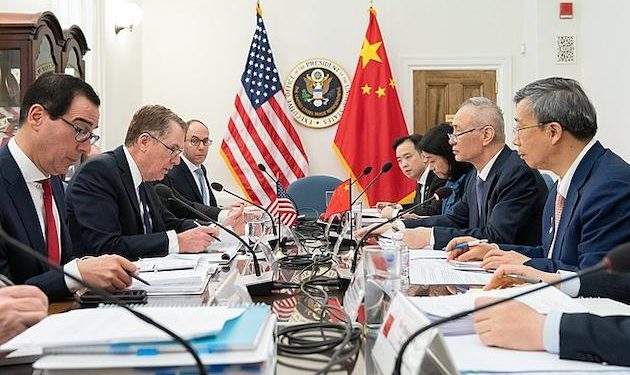- While promising a new approach to economic relations with China, Trade Representative Katherine Tai stressed that the U.S. will take “all steps necessary” to protect its interests
- Tai, who was appointed by President Joe Biden in April, added that she will seek new talks with Beijing, which has failed to keep promises made under a trade deal agreed with former president Donald Trump
- The two countries have imposed mutual trade tariffs worth billions of dollars since 2017, after Washington accused Beijing of preventing access to its markets and stealing intellectual property
WASHINGTON D.C.: While promising a new approach to economic relations with China, Trade Representative Katherine Tai stressed that the U.S. will take “all steps necessary” to protect its interests.
Tai, who was appointed by President Joe Biden in April, added that she will seek new talks with Beijing, claiming China has failed to keep promises made under a trade deal agreed with former President Donald Trump, and did not rule out imposing further trade tariffs.
However, the U.S. is no longer seeking to make China reform its “non-market economy,” she added, noting that, rather, the U.S. needs to increase its competitiveness.
During a briefing held in Washington, Tai stated, “For too long, China’s lack of adherence to global trading norms has undercut the prosperity of Americans and others around the world. We must defend our economic interests.”
The two countries have imposed mutual trade tariffs worth billions of dollars since 2017 after Washington accused Beijing of preventing access to its markets and stealing intellectual property.
Under the first phase of Trump’s deal, China promised to purchase more U.S. agricultural and other goods.
However, Tai stressed that the Chinese government continued to heavily subsidize industries, such as agriculture, steel, and semiconductors, with billions of dollars, making it impossible for American companies to compete.
She added that she will drop the upcoming phase two of Trump’s China agreement, which demanded further reforms to China’s economy, as it is unlikely to succeed.
Instead, the U.S. and its allies must bring Beijing in line through “bilateral and multilateral channels” and increase their competitiveness, she said.
“Unlike the past, this administration will engage from a position of strength, because we are investing in our workers and infrastructure,” Tai added, stressing that the Biden administration will invest in green energy and infrastructure, which will create new jobs.
However, Biden’s $1 trillion infrastructure bill and $3.5 trillion social spending plan remain in limbo in the Senate.
Tai’s statement seemed to be “an invitation to restart negotiations between the two countries,” said Craig Allen, President of the US-China Business Council, to the BBC.






